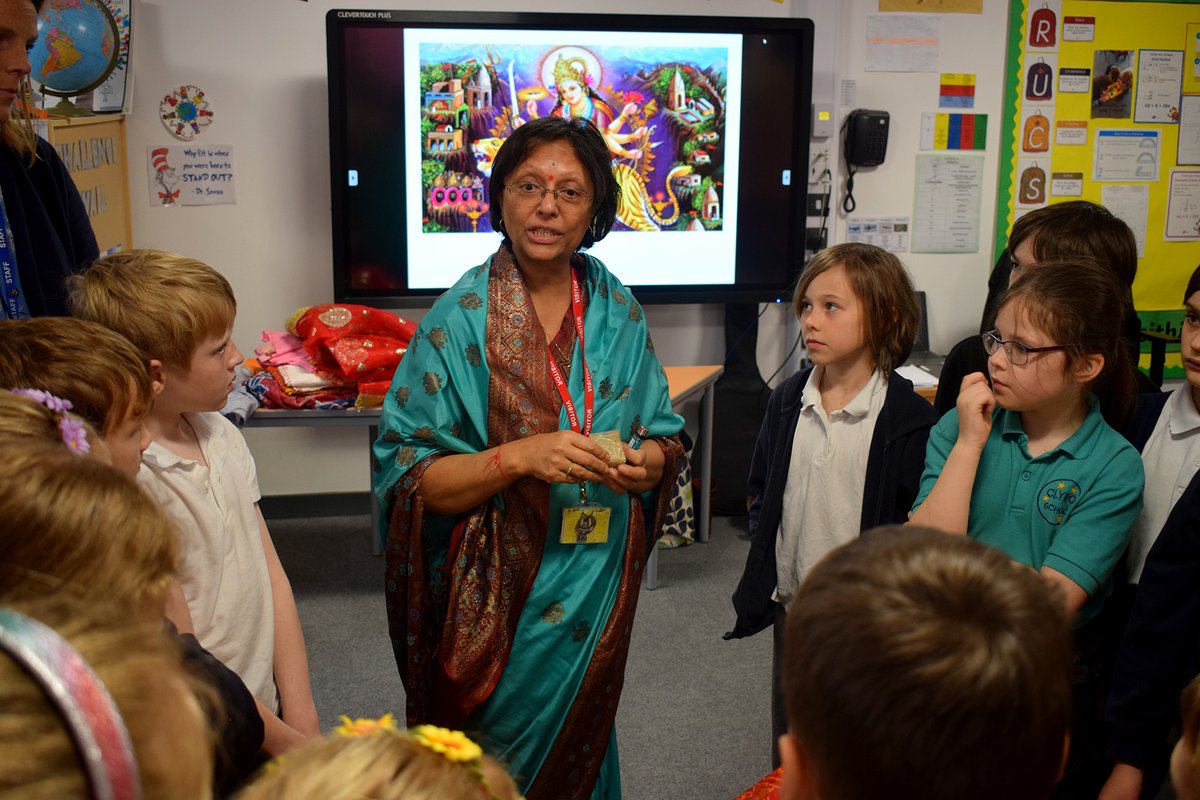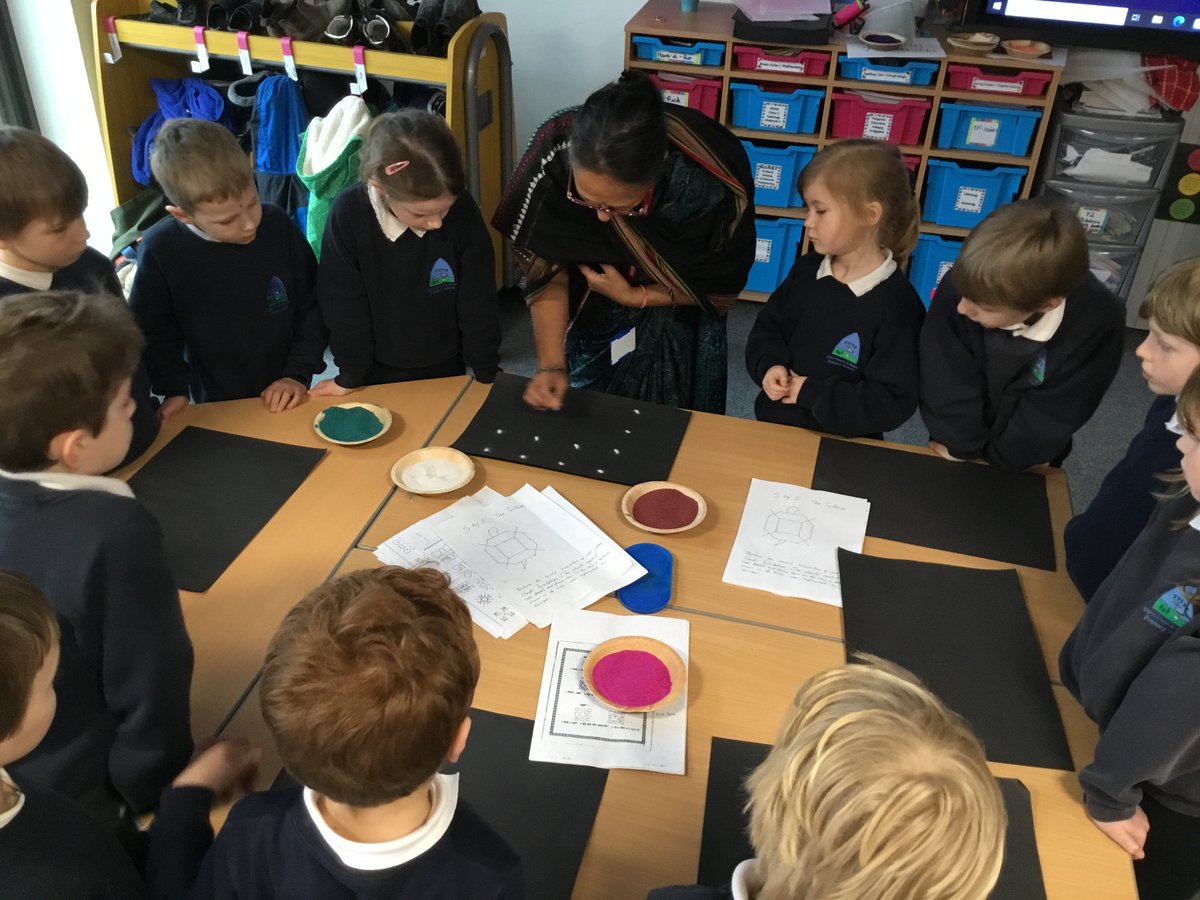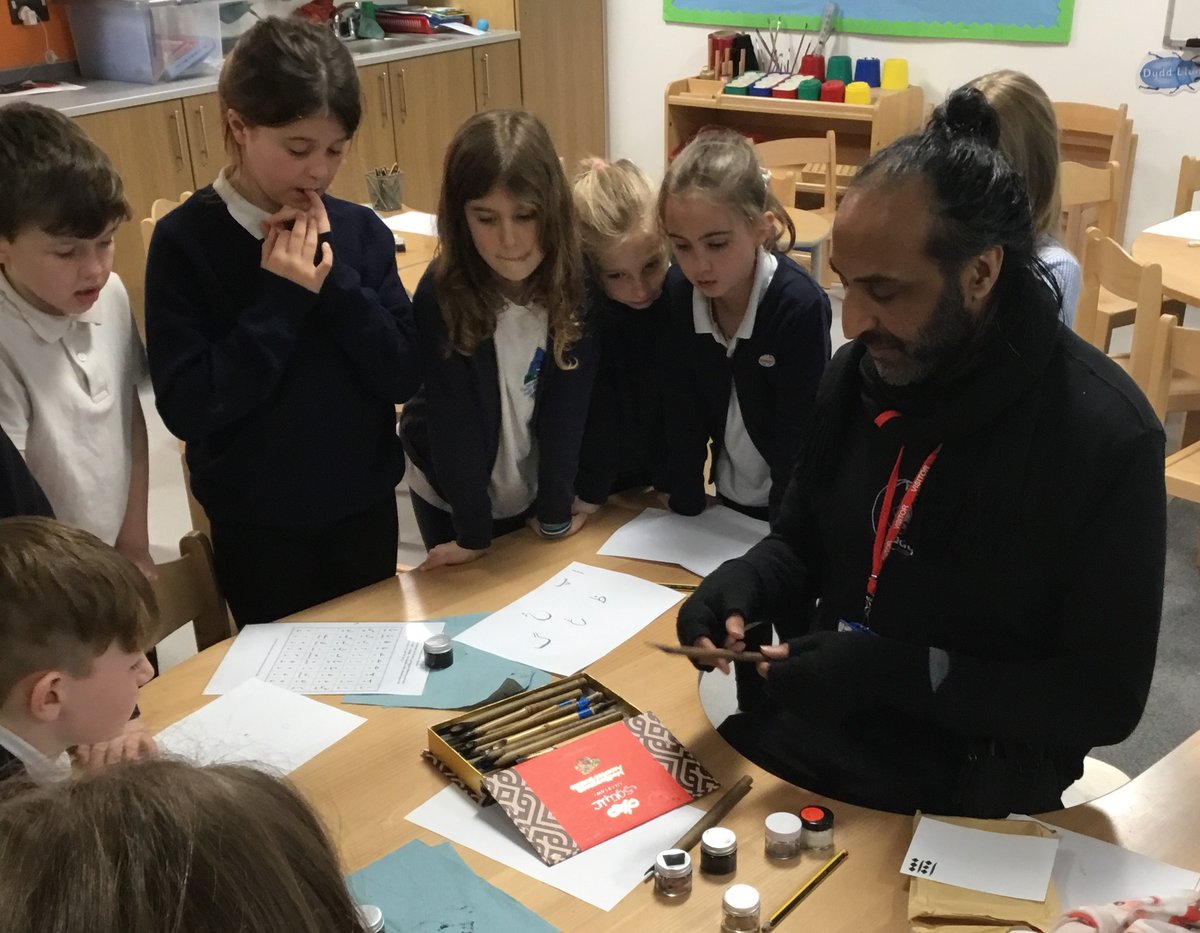Interfaith Days
Go to:
Clyro Church in Wales Primary School - Sarah Groves
Clyro is a small, rural three class Church in Wales Primary School, situated on the English-Welsh border. The catchment area covers small outlying rural villages. Pupils are predominantly white British. 3% of learners are previously entitled to Free School Meals and 20% of pupils have Additional Learning Needs. The school is linked to the local church community of St. Michael and All Angels. The school regularly use the church as a resource as well as for termly church services. Clyro were the first school in Powys to ever hold a multi-faith day. Due to context of the school, leaders and staff wanted to give children the opportunity of gaining first-hand experiences. The days have created an ongoing dialogue with faith leaders.
The focus of this project was to develop interfaith days, highlighting the Religion, Values and Ethics (RVE) element of diversity, world faiths and religions. We then looked at how this could be built upon and developed throughout the year.

Why did you choose this focus?
Due to our context of our school and wanting to give the children the opportunity to gain firsthand experience from faith leaders.
We also wanted to link with Swansea and Brecon Diocese theme for the spring term which was ‘creativity’.
We wanted to share practice within our networks, so we opened this interfaith day up to other Headteachers and clergy within the diocese. This allowed us to demonstrate and build a bank of information and resources for all schools in Powys to benefit from. The project further developed partnerships with the local church, the interfaith Bishop’s Officer and the diocese education team.
What changes did you make?
We changed the focus of this interfaith day. Previously we had concentrated on a general introduction to world faiths and religions. This time, we used the creativity theme from the Diocese of Swansea and Brecon. We met with all faith workshop leaders to discuss how important creativity was to their religion and how they could incorporate this theme into their workshops. The Christianity workshop focused on the use of prayer, music and sound meditation. Calligraphy art was the focus for the Islam and Rangoli art for Hinduism. Finally, our Jewish workshop focused on dance and song.
Following the day, we reviewed our RVE curriculum. We identified opportunities for focus work on different religions, developing pluralistic approaches and ensuring we were including the non-religious philosophical convictions. To personalise our curriculum we incorporated creativity, different faiths in Wales, the diocesan themes for the year, our School of Sanctuary work, and significant dates within the Christian calendar. We now have a personalised curriculum map that we intend to build further on.
What was the impact of the changes?
By theming the interfaith day, it has enabled the children to see the similarities and differences in world religions and how the theme of creativity is interlinked and important to these religions. The creativity interfaith day has transformed our pupils’ lives by opening them up to first-hand experiences of creativity across faiths, promoting respect and celebrating that they are all special and unique, enhancing and enriching our RVE curriculum.
Working with different faith leaders enabled pupils to have a growing interfaith dialogue with them. We showcased creativity in schools for the local community through the creation of a film, along with articles for our website and social media.
What influenced you?
We could not have undertaken any of this work without the help, advice and use of religious and faith leaders:
- Islam - Mr Raz Ul Haq
- Sikhism – Mr Butta Singh
- Judaism - Mrs Jane Silver-Corren
- Hinduism – Mrs Bharti Taylor
Being experts in their fields, they led and resourced workshops for each of our interfaith days.
I undertook Continued Professional Development (CPD) on RVE through Powys RVE Network meetings, RVE Co-ordinator’s and Headteachers meetings, as well as attending training by Mr Lat Blaylock, RE Adviser, on the new RVE curriculum. Lat Blaylock’s inspiring training and the creativity interfaith day enabled me to marry the two together and develop our new two year rolling RVE programme.


Top three takeaways
- We have learnt, with all of the RVE network and alongside our work to become a ‘School of Sanctuary’, how well we are fostering in each individual child a love of learning by nurturing and developing curiosity, awe and wonder. We are expanding pupils’ horizons by providing creative, inspiring and challenging experiences and opportunities which allow our children to thrive, leaving us as confident, capable and well-rounded citizens, equipped for the future
- Using experts is a great way to develop work in school on other faiths and non-religious philosophical convictions
- To try different things, have a go, don't be afraid to change approaches. It’s always a learning journey